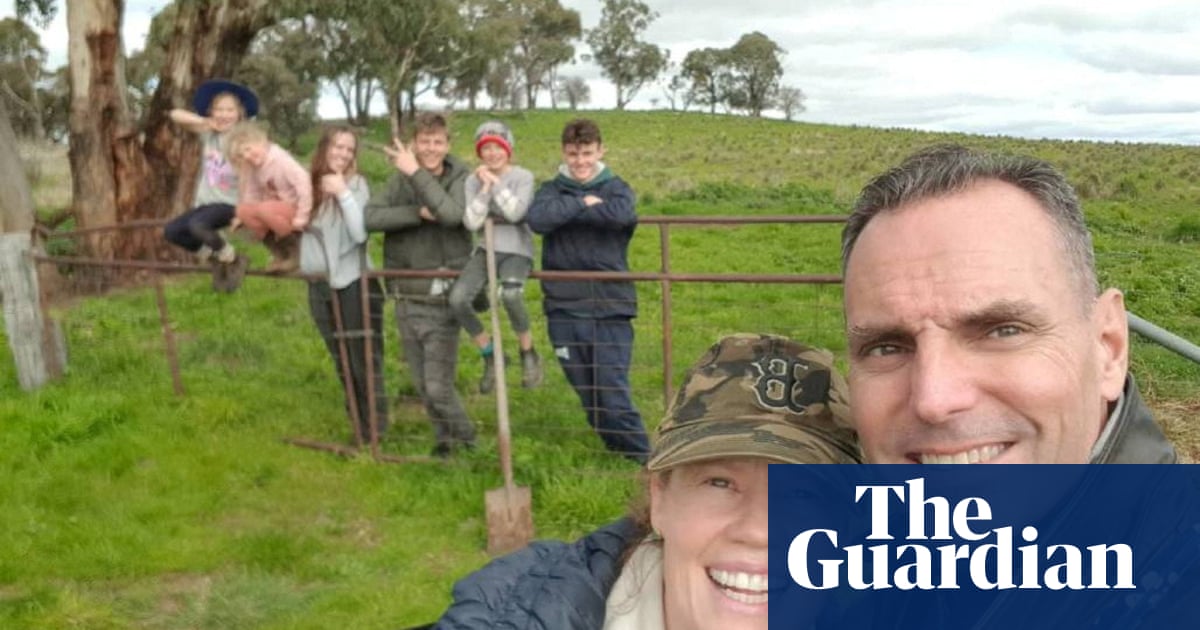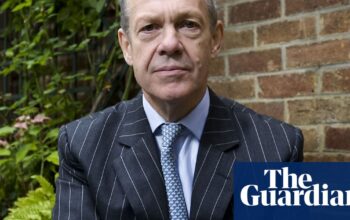
Daniel Duggan, an Australian citizen and former US marine pilot wanted in the United States over allegations he trained Chinese fighter pilots, is eligible to be extradited, a Sydney magistrate has ruled. .
Duggan appeared in court for the first time since his arrest 19 months ago, dressed in a grey suit jacket, white shirt and blue tie. From behind the security glass of the dock he blew kisses to his family and supporters, and made a love-heart symbol towards his wife, Saffrine, mouthing the words “I love you”.
The magistrate, Daniel Reiss, told the court Duggan was “eligible for surrender” to the US and ordered that he be committed to prison.
Duggan has 15 days to seek a review in the federal court. The extradition process, which involves several levels of review and appeal before a final decision by the attorney general, could remain before Australian authorities for years.
The US is seeking the extradition of Duggan, 55, on charges of arms trafficking and money laundering arising from his alleged training of Chinese fighter pilots more than a decade ago. The allegations have not been tested in court.
-
Sign up for Guardian Australia’s free morning and afternoon email newsletters for your daily news roundup
A US indictment alleges he taught Chinese fighter pilots to land jets on aircraft carriers – known as “carrier-arrested landings” – in defiance of arms trafficking laws. The indictment details payments Duggan allegedly received in 2011 and 2012 for training Chinese fighter pilots at a test flight academy “based in South Africa, with a presence in the People’s Republic of China”.
The father of six – whose children are aged between six and 18 and are all Australian citizens – faces a potential 60-year prison term if convicted in the US.
Duggan, who has no criminal history anywhere in the world, has faced significant isolation in prison, having been classified as a high-risk inmate. He has consistently denied the allegations against him as politically motivated, and has claimed the indictment is filled with “half-truths, falsehoods and gross embellishments”.
In his formal decision, Reiss wrote: “Mr Duggan has not pressed any extradition objections and has not tendered any documentation that might support any such objection.
“Mr Duggan has not satisfied the court that there are substantial grounds for believing that there is an extradition objection in relation to the offences.
“I therefore conclude that Mr Duggan is eligible for extradition to the USA.”
The extradition hearing was chaotic, even shambolic. The courtroom was moved twice before proceedings started well over an hour late, after dozens of observers had been expelled from the court.
Before the hearing began, the magistrate expelled any observers without a seat, leading to protests from the floor, saying: “We demand a bigger court,” and, “This is an important case for Australia.”
The magistrate was implacable and did not start the hearing until dozens of Duggan’s supporters had been ushered out. One remained by hiding behind a pillar, unseen by the magistrate.
after newsletter promotion
A protester then repeatedly yelled that the magistrate was running a “kangaroo court” and that the hearing was in defiance of the Magna Carta.
Threatened with contempt by Reiss, the man told the bench: “You’re the one in contempt.” He left before sheriffs arrived to expel him.
Saffrine Duggan spoke outside the Downing Centre court after the magistrate’s decision. She said the order “was simply about ticking boxes”. Her husband “had always denied the allegations”, she said, and would continue to fight the charges.
“We want my husband to come home here in Australia,” she said.
Saffrine Duggan added that the attorney general, Mark Dreyfus, had the power to defy the US extradition request and to release her husband.
“We respectfully ask the attorney general to take another look at this case, and to bring my husband home.”
Duggan’s daughter Molly told supporters her father’s arrest and imprisonment had left the family “in a constant state of crisis and turmoil”.
“Dad is going through a horrible, alienating, dehumanising experience. He may never be the same.”
Source: theguardian.com



